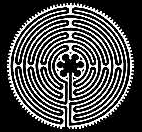Mysticism : The heartbeat of Islam
What is faith according to Islam? Faith is belief in : One God : A Divine Presence, In the existence of spiritual beings known as angels In the revelations of God, the Psalms revealed to David, the Torah sent down to Moses, the New Testament brought to Jesus and the Final Testament, The living Qur'an brought to Muhammad all the prophets that were sent as mercy to mankind : The Judgement Day and Resurrection The Divine Decree destiny
12.31.2008
Quantum Islam
Does Physics Confirm the Qur'anic Worldview?
By Dr Kevin J. Barrett
The Qur'an, it has been argued, is unique among the scriptures of the major world religions in its compatibility with the shifts in world-view that have accompanied major scientific discoveries.
When Copernicus argued that the earth was not the center of the universe, the Christian worldview was thrown into chaos. Christians, with their anthropocentric cosmology, believed that we human beings were the be-all and end-all of the entire cosmos, so our planet had to be at the exact center of everything. This error was the natural result of confusing God with one of His creatures, a human being. The humanist heirs to Christianity persist in the same error, though they, along with most Christians, have grudgingly accepted the Copernican revolution, at least in astronomy. Muslims, on the other hand, have always known Allah as rabb al-`alamin, the Lord of the Worlds. That means that there are many worlds, of which ours is just one. Copernicus's discovery was not particularly surprising or disturbing to Muslims.
The success of popularizations of quantum physics, especially the recent film What the Bleep do We Know, suggests that a new Copernican revolution is brewing. Once again Muslims will find that its consequences are in accordance with Qur'anic teachings, even as non-Muslims find their entire worldviews turned upside-down. And once again, at the heart of the change is a scientific discovery showing that our world is merely one of an almost infinite plethora of other worlds.
Quantum physics, the most successful mathematical model of physical reality, tells us that “deep reality” consists not of physical objects, but of probability waves. Each point on a probability wave corresponds to an actual state of physical reality as we experience and measure it. But along with the one that we perceive and measure are an almost infinitely large number of other realities—other worlds—that seem to exist in parallel universes to which our senses and instruments do not have access.
The Western scientists who developed quantum theory have had difficulty accepting its implications. Like the pre-Copernican popes, they are emotionally attached to the idea that their own little world is the center of everything. Could my physical universe really be just one of a huge number of parallel universes branching out to infinity? If there are so many worlds, why do I just perceive one of them?
Islam answers “Why not?” If quantum physics is correct, Allah is Lord of the Worlds not just in the sense of having created an enormous number of suns and planets, but also in unfolding a multiplicity of worlds (universes) as part of the very process of creation. The idea that these unfolding worlds exist in a realm hidden from us should not surprise readers of the Qur'an, which repeatedly speaks of `alam al-ghaib (the concealed dimension of reality). Nor should Muslims be dismayed by the almost infinite richness and mulitiplicity of Allah's creation. After all, Allah is the One who only has to say “Be” and it is. Nor should Muslims have difficulty accepting their humble place in this magnificent scheme. After all, our purpose and place is to submit to Allah, not boastfully insist that we and we alone must be the center of creation.
The new Copernican revolution of quantum physics inspired the recent movie sensation What the Bleep Do We Know, a lively, thought-provoking film that predictably takes a somewhat narcissistic approach to quantum reality. Whereas Islam orients us toward awed submission to the Lord of the Worlds, new age spirituality often emphasizes personal power and gratification. Rather than finding balance and inner peace, and marveling at the stunning richness and multiplicity of unfolding creation, the new age approach to the discovery of multiple universes is, “That means I can choose which universe I want to live in—I can control the very reality I perceive! Wow, I'm almost a god! Maybe I AM God!” This mistake is inevitable, given Western culture's drift from Christianity (which confuses a man with God) to humanism (which makes mankind into its God) to the current state of confusion as technology grasps for seemingly godlike powers.
Are there really multiple realities branching out all around us, and can we really choose between them? This question reduces a tremendous insight into the nature of reality into a pragmatic quest for power. Here are the stages the Western world is going through as it confronts the new Copernican revolution of quantum reality:
(1) Denial. From Einstein's “God does not play dice with the universe” to the ongoing attempts to explain how the many “unreal” quantum realities collapse into the single “one truly real” reality that I perceive, the egocentric consciousness desperately clings to the illusion that its reality is the only real one; all others are mere illusion that must be explained away.
(2) Egocentric, power-mongering acceptance of quantum reality. Exemplified by the film What the Bleep do We Know, this approach accepts the multiple realities implication of quantum physics, but views it mainly as a tool for personal empowerment: getting rid of negative emotions, experiencing more pleasure, and generally choosing to live a more enjoyable, less neurotic life. While there is nothing wrong with getting rid of addictions and negative emotions and experiencing pleasure, making this the central goal of existence is self-defeating.
(3) Experiencing the larger vision of reality quantum physics describes, and assuming an orientation of awed, grateful submission to the Creator of that amazing reality-process.
The third stage is the one recommended in no uncertain terms by the Qur'an. Allah, the Lord of the Worlds, Creator of all that exists, is the One who is All-Knowing and All-Seeing. The basic grounding and orientation of our existence should be awed submission to Allah, not a neurotic pursuit for power over the tiny corner of reality that we inhabit.
Of the popularizations of quantum physics that I am familiar with, perhaps the best—and certainly the most interesting from a Muslim perspective—is Science, Sense & Soul: The Mystical-Physical Nature of Human Existence by Casey Blood, Ph.D. (Los Angeles: Renaissance Books, 2001). The author, a physicist who has been heavily influenced by Islamic ideas, offers an amazingly lucid interpretation of quantum physics that closely fits the Qur'anic cosmology.
As Blood describes it, the quantum description of reality puts an end to the age of materialism, by requiring the existence of nonphysical Mind behind the physical brain. This nonphysical element is extremely rich and complex, and corresponds to the part of us that survives death—the ruh in traditional Islamic cosmology. During life, it makes choices between the quantum realities corresponding to our thoughts, and these choices have immense repercussions for our experience not only of life, but also after death. In fact, the choices we make in life will have their most immense repercussions after death, as Islam teaches us. Why? Because while we are alive, the physical universe modifies and structures our consciousness, rendering finite the repercussions of each thought-choice we make. When our non-physical Mind is cut off from the physical universe, as happens to a certain extent in sleep and with absolute finality at death, the thought-forms of Mind itself become the whole of consciousness. All the good and bad that we have done is eternalized, and we enter the form of eternity shaped by our own actions. In other words, we enter an eternal paradise or jahannum that is the fruit of our choices during life. Thus our choices are of immense importance, as the Qur'an repeatedly warns us.
Blood's quantum cosmology not only suggests the existence of Allah, creator and sustainer, Lord of the Words, it demands it. By assuming that quantum reality is physical reality, Blood shows that something else—a very big something else—is needed. At the level of our individual consciousness, that something else is the nonphysical Mind or soul. At the level of the cosmos as a whole, a unifying non-physical mind underlying and creating the quantum-governed physical dimension is equally necessary. Now what could we call such an all-creating, all-embracing, absolute-justice-dispensing, all-merciful non-material mind? Muslims would call it Allah.
Besides suggesting the reality of Allah, paradise, hellfire and judgment, based on the most straightforward interpretation of contemporary physics, Blood also demonstrates where angels and jnun fit into the scheme. The realm of angels, he writes, is an aspect of non-physical Mind that is relatively closer to Allah and further from quantum-governed material reality; while the realm of the jnun is a denser layer of non-physical Mind closer to material reality. Our own Mind (ruh) can and does experience both planes.
It is well known that certain passages in the Qur'an have prefigured later scientific discoveries. But until I read Blood's book, I had never heard anyone claim that the most straightforward interpretation of the most basic scientific approach to reality, physics, had confirmed the key principles of the Islamic worldview. This is quite an interesting bit of news. As the amazing implications of quantum physics slowly seep into global consciousness, perhaps the narcissistic “Wow! I create reality” phase will give way to a more mature understanding of the cosmos—an understanding rooted in an Islamic worldview confirmed by the ripening of scientific knowledge



